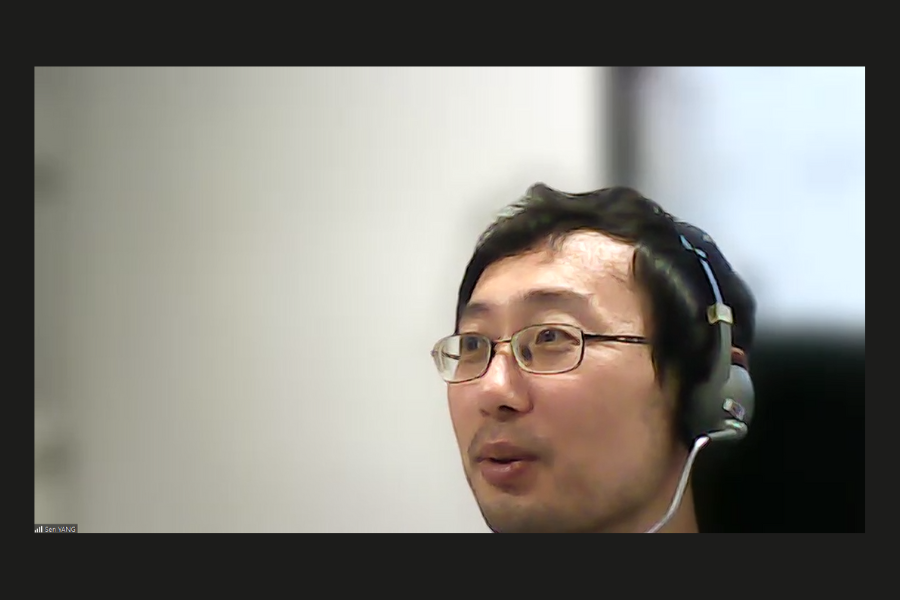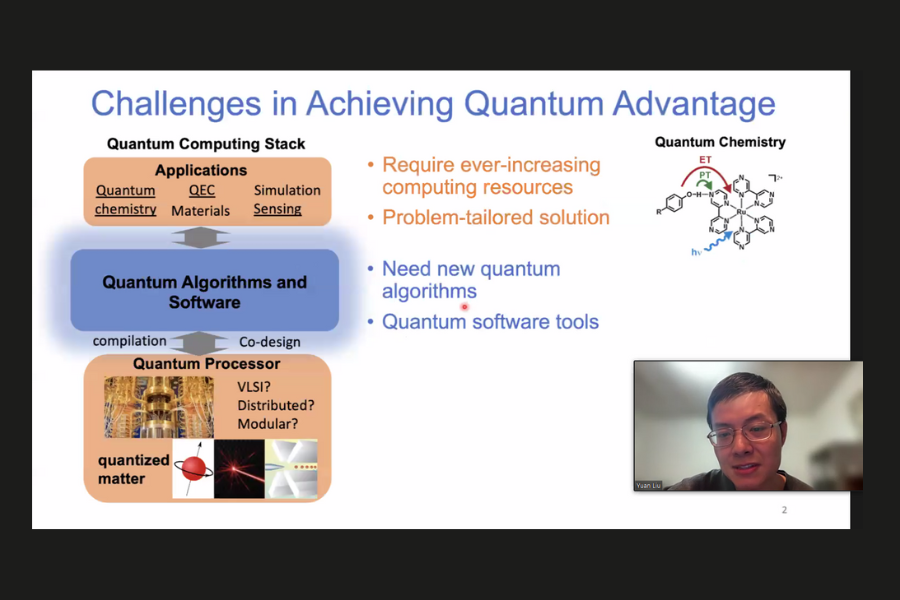New Quantum Algorithms for Old Challenges: From Quantum Simulation to Quantum Sensing
Abstract
Harnessing the power of quantum computers and systems to solve important problems beyond the capability of classical computers is an outstanding challenge. In this talk, the speaker will present his research group’s recent efforts on developing novel quantum algorithms to address challenges in quantum simulation, quantum error correction, and quantum sensing. These progresses are made possible by leveraging the quantum embedding framework, as well as a unified understanding for modern quantum algorithms via quantum signal processing and quantum singular value transform. In addition to discrete-variable systems such as qubits, in the second part, the speaker will present a generalization of quantum signal processing to continuous-variable bosonic modes, which leads to a novel algorithmic framework for quantum sensing, in particular quantum decision, at the fundamental limits of quantum mechanics. He will conclude the talk with a discussion on prospects of using hybrid discrete-continuous-variable quantum systems for computation and information processing.
About the Speaker
Dr. LIU Yuan received his BS in Physics from Tsinghua University. He then obtained his MS in Electrical Engineering and PhD in Chemical Physics from Brown University. He is currently a Postdoctoral Researcher in the Department of Physics and the Research Laboratory of Electronics at the Massachusetts Institute of Technology.
Dr. Liu’s research aims at developing quantum-information-science-inspired algorithms and framework to tackle long-lasting challenges in physical sciences and engineering.
For Attendees' Attention
This talk will be held online via Zoom. To attend, please join the Zoom meeting at https://hkust.zoom.us/j/92503111371 (Meeting ID: 925 0311 1371 / Passcode: 475970).
About the Center
For more information, please refer to the center website at https://iascqt.hkust.edu.hk/.






